For us kids, it’s our first Christmas ever without our father, Jim Fox, around–because he really was always around, even if we were far away from him. He would be on the other end of the telephone line, and he would be in our prayers, and we would be in his. And for Mom, of course, it’s the first Christmas without Dad in over a half-century. There’s a gap in all of our celebrations, in all of our thoughts this year, whether large or small (probably both, depending on what else in on our mind at any particular point in time). I don’t want to add to that gap. Instead, I want to fill it, fill it with memories and reflections of Dad at Christmastime that are happy, funny, ridiculous, at most bittersweet, and almost entirely non-fictional. Going around to all the children, asking for things they remembered about and things they learned from Dad, associated with this season, this is what I came up with. It's my Christmas present to my family, to Mom and to all nine of us kids: Samatha, Daniel, Russell (that's me), Stuart, Abraham, Jesse, Philip, Marjorie, and Baden. And, of course, for anyone who remembers Jim Fox and who happens to read it, I guess.
December 23, 2016
 Sam
Sam
“I remember the love we all had for the Osmond Christmas album [Sam is, of course, referring to the original 1976 double-LP version, not the later, truncated, no-Merrill CD version], and how we would listen to it all through December. Dad would say that their recording of ‘Sleigh Ride’ was not appropriate for the Sabbath...but we all still listened and danced to it. We still listen to that album today.”
When I describe Dad to other people, as I have done often over the past months, I use words like charismatic, confident, commanding, and so forth; I talk about his determination, his focus, and the clarity of his vision of life. The conclusion which most people immediately come to is that we were raised in a strict home–and that’s always a little hard for me to process, because while others may have experienced differently than me, I never really saw Dad as strict, as a hard-nosed rule-enforcer. Rather, there were the certain things just absolutely had to be done–like all of us going to church, for example–and then a whole lot of stuff which Dad was...well, maybe a little too busy to follow up on. He clearly had opinions about music, movies, books, art in general, but he was not Puritan, not someone who was going to make a federal case about a rocking Christmas song or two, even on a Sunday! In a surprising number of ways, Dad really did follow Joseph Smith’s dictum: teach them correct principles, and let them govern themselves.
 Dan
Dan
“One of the great Christmas memories is the time of THE GREAT SNOW FORT up at Foxhill. What an incredibly fun time we had building this awesome fort that you could literally stand up in. In the end it was something like ten feet tall!”
After some investigation, we’ve determined that this was the winter of 1999, when Dan and Lori’s family, and Abe and Betsy’s, joined Marjorie and Baden and Mom and Dad for the first Christmas up at Foxhill. What an appropriate occasion for the storm! Everyone agreed that Dad may not have actually enjoyed cold weather itself, but he enjoyed the challenge of snow. He took pride and pleasure out of plowing up, helping others drive in it (multiple memories of Dad leading the way up to Foxhill in his truck as the children slowly followed in their cars, occasionally with him chaining the cars behind him to his vehicle as he confidently drove up through the snow)–and he loved being able to enable his kids to play in the snow, whether that was plowing a massive sledding hill at the house on Saltese Rd., or getting together, as Daniel remembers, with his kids to make a snow fort. Dad was a builder, and loved the challenge which nature posed when he aimed to impose his constructive will upon the world.
Russ
Of course, “imposing his constructive will upon the world” doesn’t have a perfect track record, because, you know, sometimes the world doesn’t want to be imposed upon, and resists. And sometimes you just have to declare a draw. So one year, at the house of Saltese, Dad really came through: he came home with a tall, sparse pine tree that had to have been more than 15 ft. tall, maybe more than 20 ft. As the living room in the Saltese home had an open ceiling that went way up high, we had room for it...the problem was, how on earth to get it into the living room in the first place? Taking the front door off its hinges wouldn’t give us any more space then just opening it; what about removing the sliding glass doors on the deck? Alas, that would involve some serious damage to the siding. So instead, we just bent back the branches and rammed it through, shedding thousands of needles and hundreds of tiny twigs everywhere on the living room carpet. But at least it’s inside! Then there’s the problem that we don’t have a tree stand that can handle a monster like this. So, get the ladder and some twine, and we’ll connect lines of support from the to the ceiling beams that ran across the room. It was very difficult to decorate, because our step ladder was limited in its ability to get us up close to the branches the higher we went, and I don’t even remember if we got a star on top (I’m not sure we could see it if there was one, anyway). In the end, we lost probably a third of the walking space in our normally huge living room, and the ceiling looked like there were giant spiders living there, but hey: Dad got his way! As he usually did. (Whether it was a way worth pursuing is, well, a different question.)
 Stu
Stu
“One Christmas Eve at the Timberlane house, I was three or four at the time I think, I remember being half asleep late at night and thinking I heard Santa downstairs. I recall having the covers up to my nose, afraid to look at the doorway--I slept on the bottom bunk in that upstairs room. Finally I got brave enough to turn my head, and there was a massive shadow in the door. SANTA WAS LOOKING IN MY ROOM! I turned quickly away, a little scared--but also reassured. Santa was here--he was watching over me--and there would be presents. All was well in the world.”
I wouldn’t want to compare Dad with Santa Claus, or Jesus for that matter–but he really was a watcher, wasn’t he? He was a recorder of the family, always keeping track of what we were up to, following up on us, knocking on our bedroom doors, asking us about our thoughts and plans and activities. Dad geeked out over the VHS camera, just as he had geeked out over the 35mm film camera he’d had before that. He would sit and record our Christmases, just as he would record our family vacations, the trips he and Mom would go on to pick up their children from missions, and so much more. He was not, to be sure, the most skilled of cameramen; Phil or anyone else who has gone through the hundreds of ours of videotape which have survived the decades will testify of that. Similarly, he probably wasn’t necessarily the most skilled or compassionate or open-minded or witty of interlocutors; there are few experiences that any of kids could relate that wouldn’t, sooner or later, be brought back to a well-worn gospel lesson or something Dad learned from a business deal or a golf game. But so what? He was watching, listening, recording, responding–he was there. We always knew Dad was going to be there. As that really did mean that, “all was well in the world.”
Abe
“One Christmas that I remember very well was the one when Dad let me stay up WAY LATE with him, both of us watching The Sting on Christmas Eve.....me watching more than he because he was putting together Marjorie's MASSIVE Strawberry Shortcake Dollhouse....and it took the WHOLE movie. That’s a cherished just Dad and Abe memory of mine. I seem to feel like it was just the two of us there in the room, watching....but maybe another older person or two were with us. But definitely no one younger than me was there. It was special that he let me stay up with him.”
Dad was a busy man, we all know that. (I can remember quite clearly thinking, when I was just a child, way back when Dad was in a bishopric for the first time, “Why is Dad so busy all the time?”) And yet, his busy-ness never stopped him from, every once in a while, without warning, choosing to throw the “rules” to the wind and treat us with something special–maybe something one-on-one, something we didn’t expect, something which we treasured all the more because it was so unlike Dad. I can remember Dad shocking Daniel, Stuart, and I one time by offering to play a game of Dungeons and Dragons with us–we all have stories like that. Abe’s memory fits with this element of Dad. For all of us who have stayed up late assembling our kids’ presents before: can you picture Dad, with the instruction manual laid out beside of him (but of course he’s not looking at it, because he never did; it was just a way to get it out of the way), the movie playing on the television set, the rest of the room quiet, with Dad diligently going about Santa Claus’s work...and Abe–being judged instantly by Dad as old enough, and responsible enough–being invited to sit down and be part of the late night project? I can picture it–and it bugs me that I think I’ve never done the same for any of my children, instead preferring to send them back to their beds. Sometimes, you just need to be willing to change things up, I guess.
 Jess
Jess
“Three years ago we had the idea to cut down a tree on Foxhill for our Christmas tree. The first year we went out was a success and we found a perfect tree. To our surprise and enjoyment, Dad had just made a batch of vegetable soup with sliced sausage. We were all cold and tired from the hike and cutting down the tree, and so our whole family happily devoured the soup with Mom and Dad. They loved listening to our kids talk about the experience of cutting down the tree, etc. Anyway, things went so well the first year we decided to make it a tradition and go again. The following year, Dad had the soup all prepared and we loved the whole experience again. We even came across a tree that had fallen and was blocking the trail. I and a few of us stayed behind after we chopped down our tree to clear the path. When Dad heard that we were still on the path cutting up a fallen tree, he jumped on a four wheeler and came to the rescue with a chain saw. He cut up the tree swiftly so we could all come back to the house and enjoy his soup.”
Going along with Abe’s memory above–Dad knew that there were things expected by us kids, and he knew that sometimes he needed to challenge us in our expectations, goad us, encourage us, push us...and then sometimes, he knew (especially as we got older) that he just needed to be there, and play his role, and allow the expected memories to happen. Dad was our ringleader in so many ways, but sometimes–in the same sort of treasured, unexpected moments such as Abe mentioned above–he would become a supporting player, someone who was ready to serve and support us as we went after our own goals, with our own families and our own plans. For someone with as inexhaustible energy levels as Dad, it must have been an odd transition for him to move in the direction of letting his kids decide things, with him being an enabler of us kids, rather than an instigator. That’s something which Melissa and I struggle with today, as I’m sure all of the older children (one of whom is already a grandparent herself!). But Dad sometimes knew he had to do just that, and did it very well.
 Phil
Phil
“I am not 100% confident in this memory, but I believe my love for The Story of the Other Wise Man came from Dad’s love for that story as well.”
Dad’s approach to the gospel wasn’t doctrine and scriptures, doctrine and scriptures, doctrine and scriptures, all the time, even if it sometimes seemed that way. No, Dad also had a sentimental, even cheesy side–and sweet, simple stories like van Dyke’s (which other families confirm Dad did know and like, and would share with his grandkids on occasion) were an important part of his faith, along with all the books written by general authorities and all the books those general authorities themselves would often cite. Can anyone else remember the stories he would read, when we older kids were young, from He Walked the Americas? A bunch of Native American folktales, re-told and re-purposed, into something that he could weave into gospel lessons that he would draw out of the Book of Mormon. Ditto for this quaint, lovely, faith-promoting story of Christmas; it’s the sort of thing that fit that less remarked upon side of Dad’s own testimony of God very well.
 Marjorie and Baden mentioned the same memory, or at least the same context for the Christmas/wintertime memories they shared, so I’m putting them together:
Marjorie and Baden mentioned the same memory, or at least the same context for the Christmas/wintertime memories they shared, so I’m putting them together:
Marj
“Those one-on-one chairlift rides while skiing were so memorable. We had wonderful one-on-one conversations. I remember being on the chairlift with Dad once, just talking, and he told me that, for him, it was never a question of ‘if ‘ he was going to make $1 million; but ‘when.” He taught me about having the right mindset. And also, those trips showed us that Dad was the hard worker with the right priorities. One time, I found out that Dad had been at the office working until 2 AM, getting everything done that he needed to, so that he could take the following day off, to take us skiing. It made me feel so loved, that he would work so hard, so that he could spend an entire day with us.”
Bay
“Probably some of my more fond memories with Dad, winter, and Christmas are wrapped up with our skiing trips. I am scared of thrills in general so there was a lot about actually skiing that scared me. But Dad always stuck with me. We went slow but we had fun. Whether it was at Heavenly, Big Sky, or Park City, he was always with me, going slowly along, steadily. I think I finally left him behind for uncharted powder at Heavenly one year; it was only then that I was brave enough. Of course, it wasn’t just the skiing. I remember one time driving up to Mount Spokane in the red, old, stick shift Subaru. I was 15, I think. There is a spot on the way up where there is a long curve that meets up with the intersecting road. There is a stop sign before the road connects. I remember slowing a little and then just running it because there was no one around. Dad just said ‘no!’ with his low serious tone and I think I said ‘Sorry, I won't do it again!’ But we still had a fun day skiing.”
Dad was a constant teacher, even while doing something fun, something outside, something in the cold weather! But maybe even more important than what he taught all us kids, was how he taught us. Dad modeled for us the kind of teaching (patient, observant, conscientious) we should strive to make a part of our lives, and the kind of work (determined, efficient, responsible) that would be an essential part of that teaching–and, last but not least, the kind of disciplining (“reproving betimes with sharpness” indeed!) we might need to make use of in connection with that work and teaching as well. How well have any of us absorbed all these lessons which Dad taught us, and the example he provided for us, on those ski slopes and throughout all these Christmases over the years? (Particularly those of us old enough that we mostly missed out on the skiing years, grumble, grumble?) Almost certainly the answer is: not as well as we should. But we’ll keep trying–and fortunately, we have these memories to help us along the way.
Merry Christmas, Mom and everyone. And merry Christmas to Dad as well! Whatever else he may be doing, I’m sure he’ll spend the holiday watching, and working, and laughing, as he always did. Let’s all do the same.






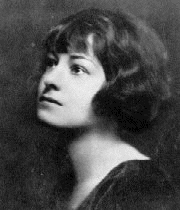 Alexander
Alexander  Listeners of radio’s Columbia Broadcasting System who tuned in to hear a Christmas Eve rendition of Charles Dickens’ A Christmas Carol were shocked when they heard what appeared to be a newscast from the north pole, reporting that Santa’s Workshop had been overrun in a blitzkrieg by Finnish proxies of the Nazi German government. The newscast, a hoax created by 20-something wunderkind Orson Wells as a seasonal allegory about the spread of Fascism in Europe, was so successful that few listeners stayed to listen until the end, when St. Nick emerged from the smoking ruins of his workshop to deliver a rousing call to action against the authoritarian tide and to urge peace on Earth, good will toward men and expound on the joys of a hot cup of Mercury Theater of Air’s sponsor Campbell’s soup. Instead, tens of thousands of New York City children mobbed the Macy’s Department Store on 34
Listeners of radio’s Columbia Broadcasting System who tuned in to hear a Christmas Eve rendition of Charles Dickens’ A Christmas Carol were shocked when they heard what appeared to be a newscast from the north pole, reporting that Santa’s Workshop had been overrun in a blitzkrieg by Finnish proxies of the Nazi German government. The newscast, a hoax created by 20-something wunderkind Orson Wells as a seasonal allegory about the spread of Fascism in Europe, was so successful that few listeners stayed to listen until the end, when St. Nick emerged from the smoking ruins of his workshop to deliver a rousing call to action against the authoritarian tide and to urge peace on Earth, good will toward men and expound on the joys of a hot cup of Mercury Theater of Air’s sponsor Campbell’s soup. Instead, tens of thousands of New York City children mobbed the Macy’s Department Store on 34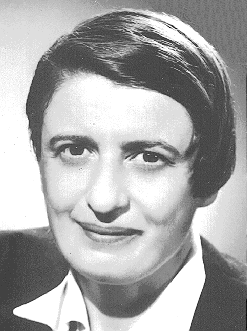 In this hour-long radio drama, Santa struggles with the increasing demands of providing gifts for millions of spoiled, ungrateful brats across the world, until a single elf, in the engineering department of his workshop, convinces Santa to go on strike. The special ends with the entropic collapse of the civilization of takers and the spectacle of children trudging across the bitterly cold, dark tundra to offer Santa cash for his services, acknowledging at last that his genius makes the gifts — and therefore Christmas — possible. Prior to broadcast, Mutual Broadcast System executives raised objections to the radio play, noting that 56 minutes of the hour-long broadcast went to a philosophical manifesto by the elf and of the four remaining minutes, three went to a love scene between Santa and the cold, practical Mrs. Claus that was rendered into radio through the use of grunts and the shattering of several dozen whiskey tumblers. In later letters, Rand sneeringly described these executives as “anti-life.”
In this hour-long radio drama, Santa struggles with the increasing demands of providing gifts for millions of spoiled, ungrateful brats across the world, until a single elf, in the engineering department of his workshop, convinces Santa to go on strike. The special ends with the entropic collapse of the civilization of takers and the spectacle of children trudging across the bitterly cold, dark tundra to offer Santa cash for his services, acknowledging at last that his genius makes the gifts — and therefore Christmas — possible. Prior to broadcast, Mutual Broadcast System executives raised objections to the radio play, noting that 56 minutes of the hour-long broadcast went to a philosophical manifesto by the elf and of the four remaining minutes, three went to a love scene between Santa and the cold, practical Mrs. Claus that was rendered into radio through the use of grunts and the shattering of several dozen whiskey tumblers. In later letters, Rand sneeringly described these executives as “anti-life.”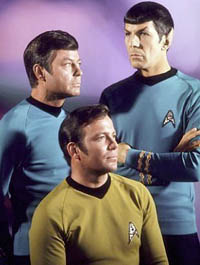 Mr. Spock, with his pointy ears, is hailed as a messiah on a wintry world where elves toil for a mysterious master, revealed to be Santa just prior to the first commercial break. Santa, enraged, kills Ensign Jones and attacks the Enterprise in his sleigh. As
Mr. Spock, with his pointy ears, is hailed as a messiah on a wintry world where elves toil for a mysterious master, revealed to be Santa just prior to the first commercial break. Santa, enraged, kills Ensign Jones and attacks the Enterprise in his sleigh. As  This ABC Christmas special featured Santa as a happy-go-lucky swinger who comically wades into the marital bed of two neurotic 70s couples, and also the music of the Carpenters. It was screened for television critics but shelved by the network when the critics, assembled at ABC’s New York offices, rose as one to strangle the producers at the post-viewing interview. Joel
This ABC Christmas special featured Santa as a happy-go-lucky swinger who comically wades into the marital bed of two neurotic 70s couples, and also the music of the Carpenters. It was screened for television critics but shelved by the network when the critics, assembled at ABC’s New York offices, rose as one to strangle the producers at the post-viewing interview. Joel  A year before their rather more successful Christmas pairing with John Denver, the
A year before their rather more successful Christmas pairing with John Denver, the  Undeterred by the miserable flop of the movie Can’t Stop the Music!, last place television network NBC aired this special, in which music group the Village People mobilize to save Christmas after Santa Claus (Paul Lynde) experiences a hernia. Thus follows several musical sequences — on ice! — where the Village People move Santa’s Workshop to Christopher Street, enlist their friends to become elves with an adapted version of their hit “In The Navy,” and draft film co-star Bruce Jenner to become the new Santa in a sequence which involves stripping the 1976 gold medal decathlon winner to his shorts, shaving and oiling his chest, and outfitting him in fur-trimmed red briefs and crimson leathers to a disco version of “Come O Ye Faithful.” Peggy Fleming, Shields and
Undeterred by the miserable flop of the movie Can’t Stop the Music!, last place television network NBC aired this special, in which music group the Village People mobilize to save Christmas after Santa Claus (Paul Lynde) experiences a hernia. Thus follows several musical sequences — on ice! — where the Village People move Santa’s Workshop to Christopher Street, enlist their friends to become elves with an adapted version of their hit “In The Navy,” and draft film co-star Bruce Jenner to become the new Santa in a sequence which involves stripping the 1976 gold medal decathlon winner to his shorts, shaving and oiling his chest, and outfitting him in fur-trimmed red briefs and crimson leathers to a disco version of “Come O Ye Faithful.” Peggy Fleming, Shields and 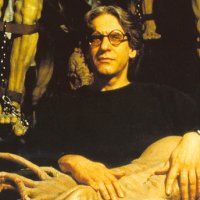 Faced with Canadian content requirements but no new programming, the Canadian Broadcasting Company turned to Canadian director David
Faced with Canadian content requirements but no new programming, the Canadian Broadcasting Company turned to Canadian director David 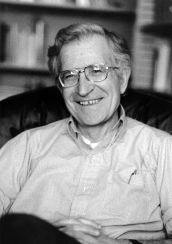 This PBS/
This PBS/






